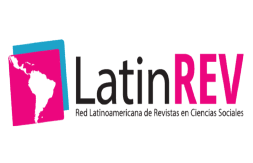Impact of ChatGPT’s Conversational Features on EFL Learners’ English-Speaking Proficiency in Latin America: A Literature Review
DOI:
https://doi.org/10.69639/arandu.v12i3.1353Palabras clave:
chatgpt, english as a foreign language, speaking skills, latin america, ai in educationResumen
This article aims to shed light on how the conversation features of ChatGPT can help improve and reach an independent English-speaking level according to the guidelines of the Common European Framework of Reference on English for the Languages as a Foreign Language learners in Latin America. The methodology in this study was conducted by searching academic databases, such as, Redalyc, Scopus, Scielo, and Google Scholar, then searched using keywords such as: “ChatGPT”, “English as a Foreign Language speaking skills”, “English language learning”, and “Latin America”. Additionally, articles published between the years 2024 and 2025 were selected to support this review. Furthermore, this research indicates how the conversation features of ChatGPT can benefit students and teachers by using ChatGPT as a supplementary tool in overpopulated classrooms. Also, one significant attribute of ChatGPT is that it can maintain a human-like conversation in any of the six levels of English. Moreover, this article reflects on how factors that hinders the English-speaking learning can be overcome. Finally, an ethical recommendation is given in the appropriate use of ChatGPT or any AI tool.
Descargas
Citas
Akpen, C. N. (2024). Impact of online learning on students’ performance and engagement: a systematic review. Discover Education, 3, Article 205. doi: https://doi.org/10.1007/s44217-024-00253-0
Aldosari, M. S. (2024). Another world with artificial intelligence in speaking classes: To delve into the influences on willingness to communicate, personal best goals, and academic enjoyment. Computer-Assisted Language Learning Electronic Journal, 25(4), 439–463. doi: https://callej.org/index.php/journal/article/view/470
Alshamy, A. A.-H. (2025). Perceptions of Generative AI Tools in Higher Education: Insights from Students and Academics at Sultan Qaboos University. Education Sciences, 15(4), Article numbers 501. doi: https://doi.org/10.3390/educsci15040501
Arroba, J. P. (2025). English Language Role in Higher-Education Student Exchange Programs. Revista Internacional de Cooperación y Desarrollo, 12(1), 81–99. doi: https://doi.org/10.21500/23825014.7666
Carrera, A. A. (2025). Using ChatGPT Voice to Improve Speaking Skills in English Language Learners. Revista Científica RCM (RCM Scientific Journal), 9(1), 7143–7147. doi: https://doi.org/10.37811/cl_rcm.v9i1.16390
Celik, B. Y. (2025). Using ChatGPT as a virtual speaking tutor to boost EFL learners’ speaking self-efficacy. Australian Journal of Applied Linguistics, 8(1), Article Number 102418. doi: https://doi.org/10.29140/ajal.v8n1.102418
Elov, B. A. (2025). Speaking exams with less anxiety in Intelligent Computer-Assisted Language Assessment (ICALA): Mirroring EFL learners’ foreign language anxiety, shyness, autonomy, and enjoyment. Language Testing in Asia, 15(3), Article number: 3. doi: https://doi.org/10.1186/s40468-024-00340-x
Hase, A. &. (2024). Teachers’ use of data from digital learning platforms for instructional design: a systematic review. Education Tech Research Dev, 72, 1925–1945. doi: https://doi.org/10.1007/s11423-024-10356-y
Inostroza, M.-J. P.-V. (2024). Chilean Primary Learners’ Motivation and Attitude towards English as a Foreign Language. Education Sciences, 14(3), 262. doi: https://doi.org/10.3390/educsci14030262
Khan, A. R. (2025). The Use of Artificial Intelligence (AI): ChatGPT and Mastery of English-Speaking Skills. International Journal of Research and Innovation in Social Science (IJRISS), 6430–6438. doi: https://doi.org/10.47772/IJRISS.2025.90400465
Klimova, B. (2024). Exploring the potential of ChatGPT for foreign language education at the university level. Frontiers in Psychology, 15(1269319). doi: https://doi.org/10.3389/fpsyg.2024.1269319
Lo, C. K.-Y. (2024). Exploring the application of ChatGPT in ESL/EFL education and related research issues: A systematic review of empirical studies. Smart Learning Environments, 11(50). doi: https://doi.org/10.1186/s40561-024-00342-5
Luo, H. L. (2025). Parental Mindset and SES: Mitigating Income–Vocabulary Gap in Early Childhood of Emergent. Education Sciences, 15(2), Article Number 239. doi: https://doi.org/10.3390/educsci15020239
Matsumura, S. &. (2025). Empowering Non-Specialist English Teachers: Self-Efficacy Enhancement Through Classroom English Proficiency and Collaborative Support. Education Sciences, 15, 24. doi: https://doi.org/10.3390/educsci15010024
Mingyan, N. (2025). Improving EFL speaking performance among undergraduate students with an AI-powered mobile app in after-class assignments: an empirical investigation. Humanities and Social Sciences Communications, 12(370), n.p. doi: https://doi.org/10.1057/s41599-025-00437-y
Montoya, A. &. (2024). Discriminatory Practices Against Non-Native English Speaker Teachers in Colombia’s Language Centers: A Multimodal Study. Profile: Issues in Teachers' Professional Development, 26(1), 117–131. doi: https://doi.org/10.15446/profile.v26n1.105427
Munaye, Y. Y. (2025). ChatGPT in Education: A Systematic Review on Opportunities, Challenges, and Future Directions. Algorithms, 18(6), Article number 352. doi: https://doi.org/10.3390/a18060352
Polat, H. T. (2024). A bibliometric analysis of research on ChatGPT in education. International Journal of Technology in Education, 7, 59-85. doi: https://doi.org/10.46328/ijte.606
Pratiwi, N. E. (2024). Speaking Practice using ChatGPT’s Voice Conversation: A Review on Potentials and Concerns. Journal of Language Intelligence and Culture, 6(1), 59-72. doi: https://doi.org/10.35719/jlic.v6i1.149
Sidner, C. L. (2005). Explorations in Engagement for Humans and Robots. Cambridge, MA, USA: Mitsubishi Electric Research Laboratories. doi: https://doi.org/10.1016/j.artint.2005.03.005
Slamet, J. (2024). Potential of ChatGPT as a digital language learning assistant: EFL teachers’ and students’ perceptions. Discover Artificial Intelligence, 4(46). doi: https://doi.org/10.1007/s44163-024-00143-2
Terasawa, T. (2024). Relationship between English proficiency and socioeconomic status in Asia: Quantitative cross-national analysis. World Englishes. doi: https://doi.org/10.1111/weng.12705
UNESCO-IESALC. (2025). Internationalisation of higher education institutions in the Latin American context: Getting started guide. Paris, France: UNESCO. Retrieved from https://unesdoc.unesco.org/ark:/48223/pf0000392237_eng
Wang, J. &. (2025). The effect of ChatGPT on students’ learning performance, learning perception, and higher-order thinking: insights from a meta-analysis. Humanities and Social Sciences Communications, 12(621). doi: https://doi.org/10.1057/s41599-025-04787-y
Wenli Wang, Y. M. (2024). Speaking accuracy and fluency among EFL learners: The role of creative thinking, emotional. Heliyon, 10(18), e37620. doi: https://doi.org/10.1016/j.heliyon.2024.e37620
Yu, C. Y. (2024). ChatGPT in higher education: Factors influencing ChatGPT user satisfaction and continued use intention. Frontiers in Education. doi: https://doi.org/10.3389/feduc.2024.1354929
Publicado
Cómo citar
Número
Sección
Licencia
Derechos de autor 2025 Franklin Absalon Mora Preciado, Frelly María Molina Pinargote

Esta obra está bajo una licencia internacional Creative Commons Atribución 4.0.






















